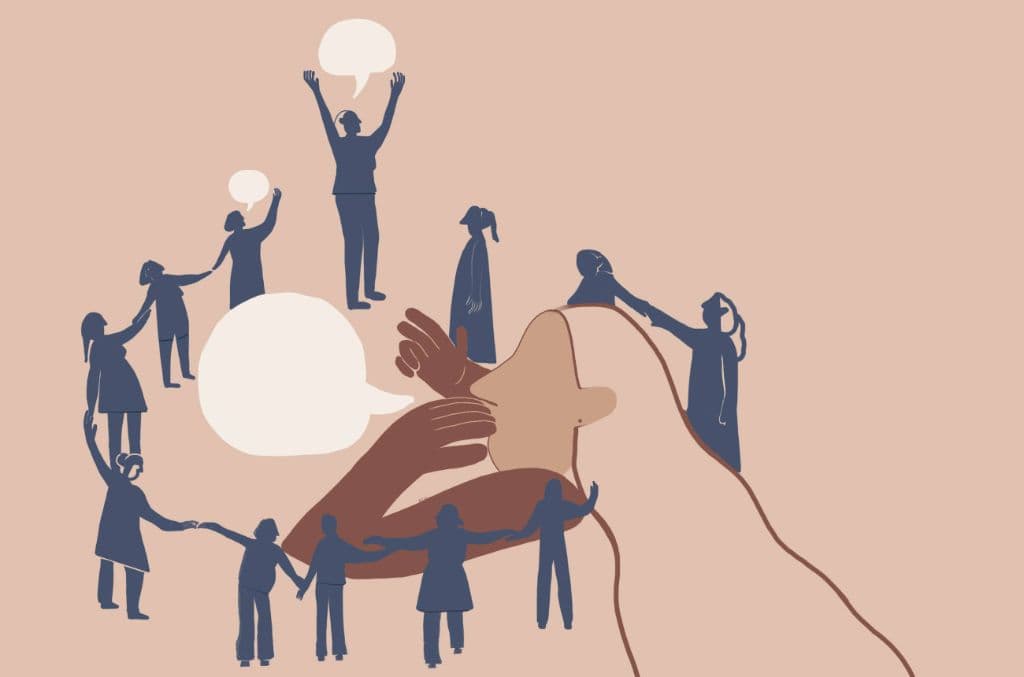This blog is clinically verified with clinical inputs from Dr. Renuka Dangare.
Being diagnosed with a disease might feel really overwhelming. I mean why wouldn’t it?
You were once a “normal” human who was living life and everything was going fine when out of nowhere this uninvited guest knocks on your door.
Yes, I’m addressing the disease as an uninvited guest cause the way I see it, they both really aren’t that different!
You see, an uninvited guest comes into your life unexpectedly just like a disease (with you having no idea how long they’re going to stay), makes you panic, then sends you in overdrive mode to cater to their needs and wants.
Then comes the awkward confrontation where you have to make a few hesitant conversations with this guest whether you like it or not, ultimately with one goal in mind, i.e. to bid farewell to them as soon as possible so that you could resume back into your normal routine while simultaneously keeping your cool and being kind with them because they’re guests before all, invited or uninvited! (while hoping you don’t see them anytime soon. I know, I’m being rude! But think about it we’ve all had encounters with such folks).
Now let's dive deeper here.
Throughout this process of hosting the guest, there’s one thing that makes the process easier and settling, and that is family! Be it your spouse, siblings, children or parents, or anyone who’s living with you. Right?
And why is that?
Straight to the fact, it is because just like you’re coping with this massive interruption posed by your guest, they are too! They’re literally going through the same problem, and feel similar disruption, anxiety, and agony that you are feeling. Resulting in you talking about it to them, probably laughing it off with a few jokes (probably about how your guest accidentally dipped their Gulab Jamun in ketchup) and realizing that you are not alone or you never were. This finally helps you and your partner in crime to work together towards hosting your guest so that they can make their departure and be on their way.
Your guest could be called “anxiety” or a more predictable guest like the monthly “PMS”. It could be a long overstayed visitor like diabetes or a not so intimidating one like a recent breakup.
When it comes to a disease, it really isn’t that different. You see you’re still the host, and the disease, as suggested before is the guest. But this time your family might not be on the same page as you. While they intend to support you full well and care for your every need, which they do with a lot of love, it is hard for them to fully empathize and step into your own shoes. The perspective of a caregiver is a different one from the one who is cared for after all (thankfully).
So who do you go to now? Who might feel exactly or quite the same as you are?
Where could you share your experience and traumas you’re going through while being completely understood?
I have an answer for you, it is Support Groups!
Support Groups bring together people who are going through or have gone through similar experiences. For example, this common ground might be cancer, chronic medical conditions, addiction, the death of a loved one, or caregiving. While these are some of the heavier topics to take up, there are also communities both in-person and virtual that may help you understand more day to day conditions, such as anxiety, managing early motherhood, keeping one another accountable for weight and lifestyle management.
A Support Group provides an opportunity for people to share personal experiences and feelings, coping strategies, or first-hand information about diseases or treatments.
For many people, a health-related support group may fill a gap between medical treatment and the need for emotional support. A person's relationship with a doctor or other medical personnel may not provide continuous emotional support, and a person's family and friends may not understand the impact of a disease or treatment on an individual’s day today. A support group among people with shared experiences may function as a bridge between medical and emotional needs.
A community of peers with a shared struggle combined with an expert that is equipped to navigate them can collectively monitor the situation and the information being shared, and analyze the problems. This also enables the experts to provide better clarity and knowledge about the conditions the group participants are coping with.
This helps participants realize they’re not alone, and also educates them about their condition or difficulty, treatments or solutions, and how others too are finding ways to alleviate similar concerns An expert mediated support group improves doctor-patient communication making it more effective as patients can open up to their doctors regarding their problems and needs better as they now have more access to health education and informative resources. So, do you see, how a disease is quite like your Surprising guest who comes and causes havoc in your life and on the other hand Support Groups are just like family, that unify us and help us achieve our common goal.
We at Proactive for Her have our very own Support Groups and Programmes, where we come together as one to try our best and bid farewell to our diseases and give you the support you deserve.

